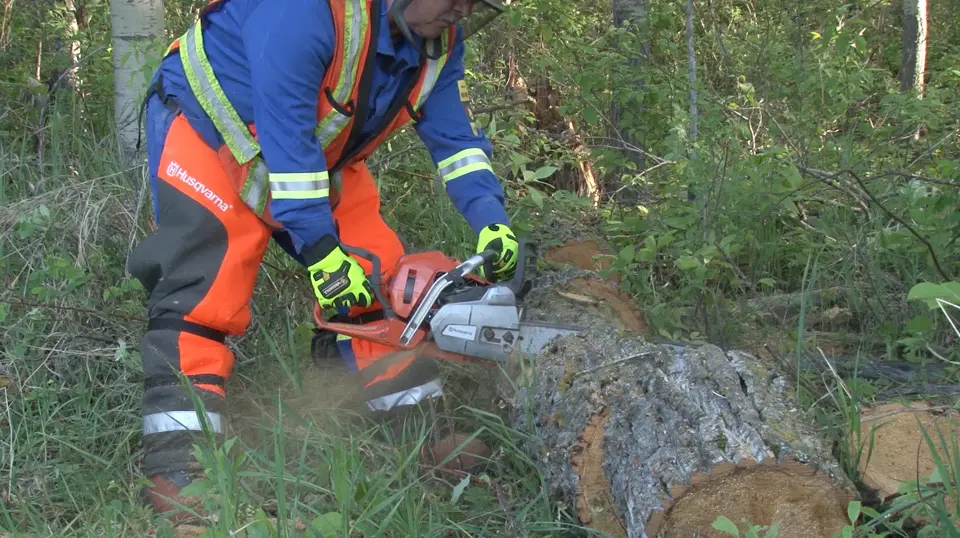Chainsaw Safety Training in Canada

The Benefits of Chainsaw Safety Training in Canada
Chainsaws are indispensable tools in various industries across Canada, including forestry, construction, and landscaping. These powerful machines make tasks such as tree felling, limb trimming, and wood cutting more efficient. However, chainsaws also pose significant safety risks if not handled correctly. Chainsaw safety training is crucial in Canada to reduce accidents, protect workers, and ensure the safe and efficient operation of these essential tools. In this article, we will explore the numerous benefits of chainsaw safety training and how it contributes to creating a safer work environment in Canada.
- Reduction in Workplace Accidents
The primary benefit of chainsaw safety training is the significant reduction in workplace accidents. Chainsaws are highly potent and potentially dangerous tools. Without proper training, workers are at a higher risk of accidents, including cuts, amputations, and injuries from kickbacks. Safety training equips chainsaw operators with the knowledge and skills needed to perform their tasks safely, reducing the likelihood of accidents.
- Compliance with Canadian Regulations
Canadian workplace safety regulations mandate that employers provide chainsaw safety training to their workers. Complying with these regulations is not only a legal requirement but also a fundamental aspect of worksite safety. Failure to provide adequate training can lead to legal consequences, fines, and disruptions to business operations. Comprehensive chainsaw safety training programs are designed to meet Canadian safety standards, ensuring that organizations remain compliant with safety requirements.
- Enhanced Hazard Recognition
Chainsaw safety training emphasizes the importance of hazard recognition. Workers learn how to identify potential dangers in their work environment, such as unstable trees, power lines, and improper terrain. This proactive approach allows employees to anticipate risks and take preventive measures, ultimately minimizing the likelihood of accidents and injuries.
- Improved Equipment Operation
Chainsaw safety training programs provide instruction on how to operate chainsaws safely and effectively. Workers learn about proper maintenance, starting and stopping procedures, handling different types of wood, and adjusting chain tension. Proper equipment operation not only reduces the risk of accidents but also enhances productivity and the quality of work.
- Customized Training
Chainsaw safety training can be customized to address specific workplace needs and challenges. Organizations can tailor the training to account for unique factors, such as the type of wood, work environment, and specific job roles. Customized training ensures that chainsaw operators are well-prepared for their specific tasks, reducing the likelihood of accidents related to their specific job requirements.
- Increased Efficiency
Well-trained chainsaw operators work more efficiently. They understand how to use the equipment effectively and can complete tasks more quickly and accurately. Increased efficiency not only boosts workplace productivity but also reduces the time spent exposed to potential safety hazards.
- Emergency Response Preparedness
Chainsaw safety training includes instruction on emergency response procedures. Workers learn how to react effectively in critical situations, such as accidents, equipment malfunctions, or medical emergencies involving themselves or their colleagues. Being prepared for emergencies minimizes their impact and ensures a timely and effective response, which can be crucial in mitigating potential accidents and injuries.
- Reduction in Workers’ Compensation Claims
Proper chainsaw safety training can lead to a reduction in workers’ compensation claims. When employees are well-prepared and educated on safety practices, they are less likely to sustain injuries on the job. Fewer workplace injuries mean fewer claims, which can lead to lower insurance premiums and cost savings for employers.
- Boosted Worker Morale
Employees who receive chainsaw safety training are more likely to feel valued and cared for by their employers. This can boost morale and job satisfaction among chainsaw operators, leading to higher retention rates and increased loyalty to the organization. A happy and satisfied workforce is more likely to adhere to safety guidelines and contribute to a safer work environment.
- Cultivation of a Safety Culture
Implementing chainsaw safety training fosters a culture of safety within the organization. When employers invest in the education and training of their chainsaw operators, it sends a clear message that safety is a top priority. Employees are more inclined to adopt safe practices and encourage their colleagues to do the same, creating a safer work environment and promoting safety as a shared value.
Chainsaw safety training is an indispensable component of workplace safety in Canada’s forestry, construction, and landscaping industries. By reducing the risk of accidents and injuries, ensuring compliance with regulations, enhancing hazard recognition, and promoting safe equipment operation, it significantly contributes to creating a safer and more efficient work environment. Moreover, it equips chainsaw operators with the knowledge and skills needed to respond effectively to emergencies, reduce workers’ compensation claims, and cultivate a robust safety culture within the organization.
Investing in chainsaw safety training is not merely a legal requirement; it is a crucial step in safeguarding the well-being of workers and ensuring the overall success of tasks involving chainsaws. It is an investment in both safety and productivity, ultimately benefiting the organization as a whole. Chainsaw operators who prioritize safety through proper training not only protect themselves but also set a positive example for others, creating a safer work culture for everyone to thrive in.
Click here for an online chainsaw safety training course.
Click here for Government of Canada information.
